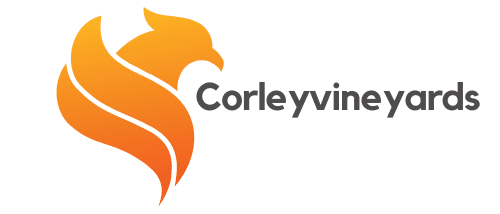How Can Mindfulness Techniques Enhance Focus and Productivity in Remote Workers?

In our current digital age, work has transcended physical boundaries. Many of us, as employees, have been catapulted into the realm of remote work. However, this transition has not come without its unique set of challenges. One of the most common obstacles remote workers face is maintaining focus and productivity amidst potential distractions. In this context, mindfulness, a practice rooted in ancient Buddhist meditation, emerges as a potent solution. Let’s dive in to explore how adopting mindfulness can help us be more attentive, contribute better, cope with stress, and ultimately boost our productivity.
Mindfulness: A Path to Enhanced Focus and Attention
Mindfulness is more than just a buzzword in modern psychology. It’s a methodical practice that helps us stay anchored in the present moment, thereby promoting increased awareness and improved focus.
A voir aussi : What Specific Yoga Asanas Aid in Alleviating Lower Back Pain?
Mindfulness encourages us to become acutely aware of our surroundings, thoughts, and feelings without judgment. This heightened sense of awareness can bring a wide array of benefits to our professional and personal lives. One of the key advantages is improved focus and attention.
Being mindful allows us to concentrate on one task at a time, reducing the likelihood of errors due to multitasking or divided attention. It encourages us to be fully involved in the work in hand, thereby enhancing our focus and leading to a more meaningful contribution.
A lire également : Which Nutritional Deficiencies Are Most Common in Vegan Diets and How to Address Them?
A study conducted by the University of Washington found that employees trained in mindfulness reported staying on tasks longer and made fewer task switches, thereby resulting in higher productivity.
Mindfulness Techniques for Remote Workers
Remote work offers flexibility but also exposes us to an array of potential distractions. Mindfulness techniques can play a pivotal role in helping remote workers stay focused and productive.
One effective mindfulness technique is meditation. Regular meditation practices, even for a few minutes each day, can help remote workers calm their minds and improve their focus. A simple starting point could be focusing on one’s breath, noticing the inhalation and exhalation, and returning the focus to the breath whenever the mind wanders.
Another strategy that could be beneficial is mindful breaks. These could be short periods of time where workers step away from their work and engage in deep breathing, a short walk, or even a mindful cup of tea! These breaks can help reset attention and combat the potential fatigue of long working hours.
The Role of Mindfulness in Stress Management
Stress has been termed the health epidemic of the 21st century by the World Health Organization. Remote workers are not immune to this epidemic. The lack of physical separation between work and home life can blur boundaries and lead to increased stress levels.
Mindfulness can help us manage stress by promoting a non-judgmental awareness of our thoughts and feelings. It helps us observe our stress responses without becoming overwhelmed by them, allowing us to respond in a more balanced and less reactive way.
For instance, mindfulness-based stress reduction (MBSR) is a program that incorporates mindfulness to help individuals cope with stress, pain, and illness. It can be particularly helpful for remote workers dealing with the pressures of balancing work and life in the same space.
Boosting Productivity Through Mindfulness
Better focus, increased attention, stress reduction – all these benefits of mindfulness contribute to one crucial outcome – increased productivity.
Mindfulness can help us manage our time more efficiently. By being present in the moment, we can focus better on the task at hand, speeding up completion time and reducing the likelihood of errors.
Moreover, mindfulness can also help improve the quality of our work. By promoting a state of flow – where we are fully immersed in an activity with energized focus and enjoyment – mindfulness can enhance creativity and problem-solving skills, leading to a superior work output.
In addition to enhancing individual productivity, mindfulness can also foster a healthier work environment. Mindful employees tend to exhibit higher levels of empathy and better communication skills – both crucial for effective teamwork in a remote working scenario.
In conclusion, mindfulness serves as a powerful tool to enhance focus and productivity in remote workers. With regular practice, mindfulness can help us navigate the challenges of remote work, fostering better focus, efficient time management, effective stress reduction, and improved overall productivity.
Incorporating Mindfulness Practices into Remote Work Life
Incorporating mindfulness into remote work life can be a transformative experience. From increasing focus to reducing stress, these practices can lead to a holistic improvement in work-life balance.
For daily mindfulness practices, remote workers can begin their day by setting a clear intention. This could be a simple goal or a positive affirmation to guide their actions throughout the day. This helps set the tone for a more mindful and productive workday.
Another simple practice to incorporate is mindful communication. Communicating mindfully involves being present during conversations, listening intently, and responding thoughtfully. This not only fosters better relationships but also reduces miscommunications and unnecessary stress.
Mindful eating is another practice that can easily be incorporated into a remote worker’s schedule. Rather than eating meals while working, take time to enjoy and savor your food. This can serve as a much-needed break and help rejuvenate your mind for the tasks ahead.
Lastly, ending the day on a mindful note can help provide closure to the workday, enabling a healthier transition to personal time. This could be a short meditation or a calming routine that signals the end of work hours, helping maintain a clear boundary between work and personal life.
Conclusion: Mindfulness – A Catalyst for Enhanced Productivity and Well-being
In the ever-evolving landscape of remote work, mindfulness training could be a game-changer. It offers an effective way to not only cope with the challenges of remote work but also enhance our personal and professional lives.
By fostering an increased sense of awareness, mindfulness allows us to fully engage in our tasks, promoting better focus, precision and ultimately, productivity. It helps us create a healthier work environment, marked by empathy, effective communication, and teamwork.
Moreover, these mindfulness techniques act as an antidote to stress, helping us maintain a better work-life balance. By enabling us to respond to stress in a more balanced way, mindfulness practices support our overall well-being, making us more resilient in the face of challenges.
As we continue to navigate the vast realm of remote work, incorporating mindfulness into our daily routine can be a potent solution to enhancing focus and productivity. As we celebrate each moment with awareness, we move towards a more mindful, efficient, and fulfilling work-life experience. After all, a more mindful worker is a more productive worker!
